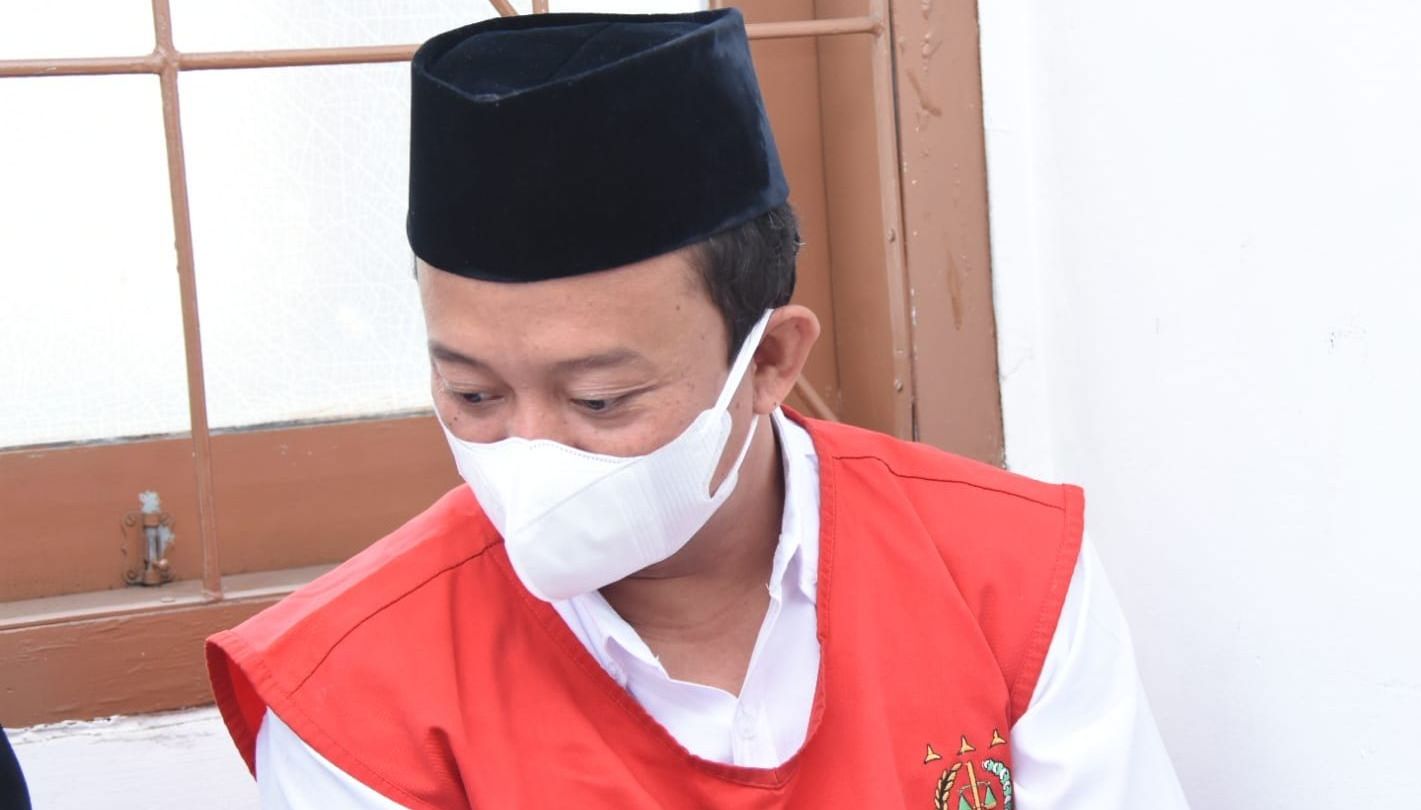Prosecutors in a serial rape case involving an Islamic school teacher in West Java demanded the most severe punishments possible for the defendant for what they see as one of the most heinous crimes imaginable.
Herry Wirawan, 36, appeared before the Bandung District Court yesterday for his indictment hearing. He stands accused of raping 13 of his students, aged 16 to 17, on various occasions from 2016 at a number of boarding schools where he taught, including Madani Boarding School in Cibiru district. His victims have given birth to 9 children.
“First, we demand that the defendant be given the death penalty. This is our commitment to give the ultimate deterrent effect for the defendant,” West Java Prosecutor’s Office Head Asep N Mulyana told reporters yesterday.
“We also asked the judges to hand down additional punishments including the defendant’s identity being disclosed to the public, as well as chemical castration.”
That first suggestion for additional punishment is all but moot at this point, as Herry’s identity and photos have been spread by extremely outraged Indonesians since the case was first reported late last year.
In addition, prosecutors are demanding that Herry pay IDR500 million (US$34,972) in fines and IDR331 million (US$23,151) as restitution to his victims.
“The defendant’s actions not only violated the physical dignities of the victims, but also the psychological and emotional states of students in general,” Asep said, adding that it was especially abhorrent that Herry used his standing in the religious community to commit the crimes.
Under Indonesian law, child rapists generally get a maximum of 15 years in prison. If the Bandung District Court agrees with the prosecutors, death penalty for Herry would be the most severe punishment handed to a child rapist in Indonesia.
As for chemical castration, the practice as a punishment was ratified into law in Indonesia after the shockingly brutal gang rape and murder of a teenage girl in Bengkulu in 2016. Activists say that the threat of severe punishment has not been as successful a deterrent as the government hoped, as sexual assault against children continue to be a serious problem in Indonesia.





Reader Interactions